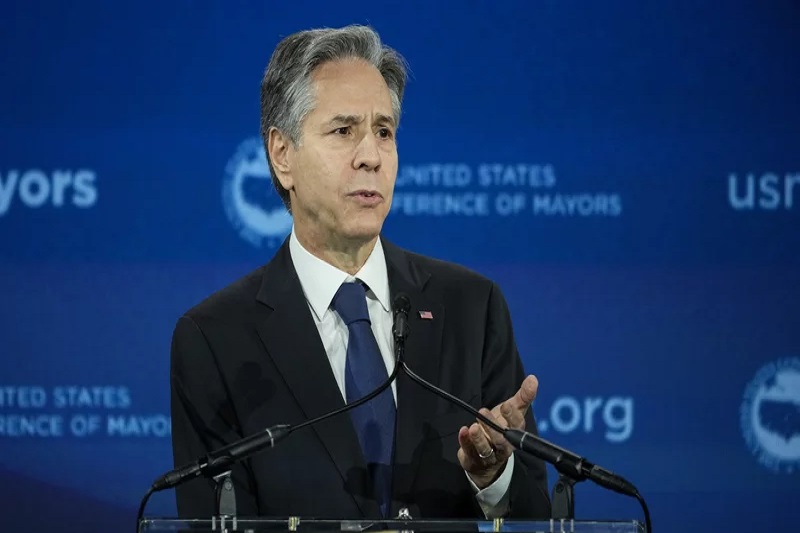U.S. Diplomatic Chief Antony Blinken said on Monday that the U.S. has decided that Ethiopian and Eritrean military forces, as well as Tigrayan rebels, committed war crimes during the two-year bloody conflict in Ethiopia’s Tigray region. A few days after returning from his trip to the Ethiopian capital of Addis Ababa, the United States Secretary of State addressed the media and said that the United States “urges the governments of Ethiopia and Eritrea, as well as the TPLF, to hold accountable those responsible for these atrocities.”
After a major agreement was reached on November 2, Blinken had said in Ethiopia that he was hopeful about the chances of peace. He then made a passionate call for accountability. “Many of these activities were not unplanned or an unintended consequence of the conflict.” “They were calculated and deliberate,” the top American diplomat stated while presenting a yearly report on the state of human rights in the United States.
He said that the State Department did a “careful review of the law and the facts” and came to the conclusion that “war crimes” had been committed by federal troops from Ethiopia and Eritrea, an old enemy that sided with Prime Minister Abiy Ahmed in the offensive, as well as by the rebel Tigray People’s Liberation Front (TPLF) and forces from the nearby Amhara region. Blinken also said that the State Department found that Ethiopian, Eritrean, and Amhara forces had committed “crimes against humanity,” but he didn’t say anything about the TPLF.
Related Posts
The fighting in northern Ethiopia was extremely destructive. Men, women, and children were murdered. The sexual assaults that were committed against women and children were appalling. Thousands of people had to be evicted from their houses against their will. Entire neighborhoods were singled out for persecution because of the nationality of their residents.
During his trip to Addis Ababa, Blinken also talked about accountability. He had an unusually long meeting with Abiy and met with TPLF leader Getachew Reda. During this journey, Blinken was also able to meet with Reda. However, while he was in Addis Ababa, he did not make any obvious references to crimes against humanity or war crimes. Abiy became enraged when Blinken, while the war was going on, spoke more generally about crimes against humanity, and the Ethiopian leader has rejected efforts for an investigation headed by the United Nations.
When asked about the timing, Blinken responded that it was “appropriate to release the determination” at the same time that the human rights report was being made public. The United States of America has in the past estimated that approximately 500,000 people lost their lives during the two-year conflict. This would make it one of the bloodiest conflicts of the 21st century and dwarf the death toll from Russia’s invasion of Ukraine.

